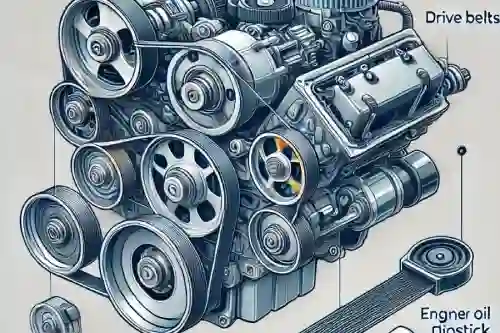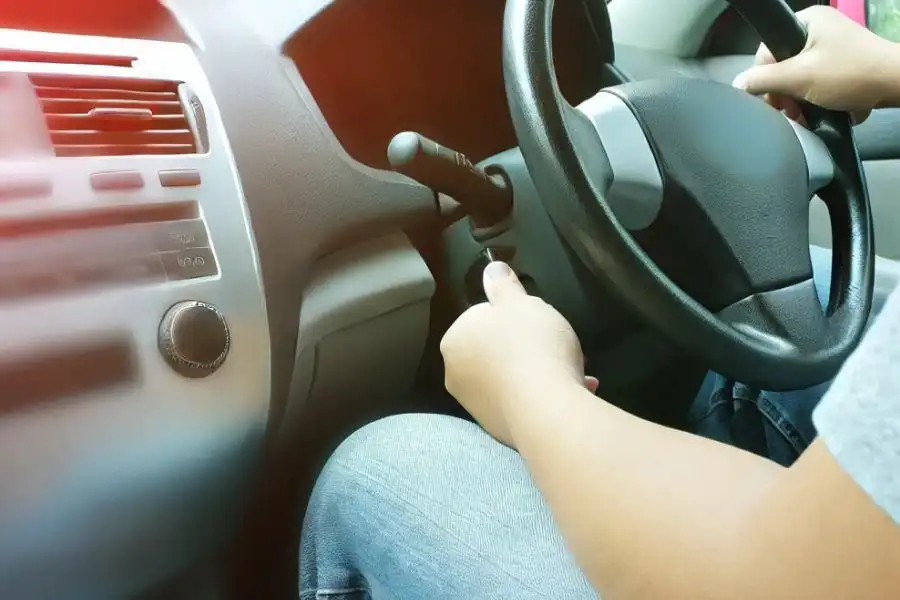Familiar to many a vehicle owner, you turn your key and hear something weird; swearing followed by silence – except for the sound of plenty of sighing. You might be wondering if that noise is just a harmless quirk or something deeper, especially when you know your car makes a noise at the beginning and fades away. The why of this phenomenon is important to know so that you can keep your vehicle safe, efficient, and reliable.
We will be exploring what could go wrong to cause your car to make these noises, and how you can remedy the situation with some maintenance tips along the way.
Key Takeaways:
- A car making noise when starting and then going away is often caused by mechanical, electrical, or environmental factors.
- Common sources of the noise include starter motors, belts, and engine components.
- Timely diagnostics and maintenance can prevent costly repairs.
Common Causes of Noise When Starting a Car
Weird noises at start-up can come from a wide range of areas on the vehicle. Many are to be blamed, and here is a breakdown of some usual suspects.
Starter Motor Issues
The one that cranks the engine is the starter motor. A faulty motor can create grinding or whirring sounds that vanish as soon as the car fires up.
Red flags: Long cranking time [to start the engine], stalling, or high-pitched whining.
Loose or Worn Drive Belts
The drive belt runs many features consisting of the alternator and air conditioning. The belt may squeal on startup if it is worn out or too loose.
Tip: Look for any signs of cracking or fraying on the belt.
Engine Oil Problems
Dirty or low engine oil can create a knocking noise for a short period because it takes some time for the oil to circulate and properly lubricate engine components.
This is something that can be prevented if you have regular oil changes.
Pro Tip: DON’T IGNORE UNUSUAL SOUNDS FROM A STARTUP. Old startup sounds (initial tensioning) need to be addressed now. Major damage could occur if this preservation material has already been in service for a while.
Unusual Noises and Their Meanings
Different types of startup noises often indicate specific problems. Here’s how to decipher them:
| Noise Type | Possible Cause | Fix |
| High-pitched squeal | Loose drive belt | Adjust or replace the belt |
| Grinding or clicking | Failing starter motor or flywheel | Inspect and replace if needed |
| Knocking or tapping | Low engine oil | Top off or change the oil |
| Hissing sound | Vacuum leak or coolant issue | Repair leaks or refill coolant |
Understanding the noise can guide you toward the right solution. If you’re unsure, consulting a mechanic is the best course of action.
When Should You Be Concerned?
While some startup noises are innocuous, others may signal severe issues. Be alert if.

- The noise continues for more than a few seconds.
- You notice implementation issues like rough idling or stalling.
- Warning lights, such as the check engine light, appear on the dashboard.
If any of these occur, rapid diagnostics are important to avoid breakdowns.
How to Diagnose the Problem
Diagnosing the source of the noise involves a combination of inspection and testing:
Step 1: Listen Closely
Pay attention to the timing, pitch, and duration of the sound. For example:
- Does it occur only during cold starts?
- Is the noise louder in certain weather conditions?
Step 2: Inspect Components
- Check for visible wear on belts, pulleys, and the starter motor.
- Use a dipstick to inspect engine oil levels and condition.
Step 3: Use Diagnostic Tools
- Mechanics often use OBD-II scanners to identify issues. Investing in one can help you perform a preliminary scan.
DIY Fixes for Startup Noises
For those comfortable with car maintenance, some fixes can be done at home:
- Replace the Drive Belt: A simple DIY task requiring basic tools.
- Top-Off Engine Oil: Use manufacturer-recommended oil to ensure compatibility.
- Tighten Loose Bolts or Components: Check engine mounts and accessories for secure fastening.
Safety Note: If unsure, always seek professional assistance to avoid accidental damage.
Preventative Maintenance Tips
Preventing startup noises involves regular upkeep. Follow these guidelines:
Regular Inspections
- Schedule routine checks for wear and tear on belts, pulleys, and electrical components.
Fluid Maintenance
- Change engine oil and transmission fluid as recommended by your car’s manufacturer.
- Monitor coolant levels to avoid overheating.
Clean and Lubricate
- Keep the starter motor and related components clean.
- Use lubricants designed for automotive parts to reduce friction and wear.
Professional Repairs vs. DIY: When to Call a Mechanic
While DIY repairs can save money, certain problems require professional expertise. Seek help for:
- Persistent startup noises that resist troubleshooting.
- Complex systems like the starter motor or flywheel.
- Electrical issues may involve intricate wiring or control modules.
How Weather Impacts Startup Noises
Cold weather often exacerbates startup noises due to increased strain on the engine. Consider the following:
- Use synthetic oil that performs well in low temperatures.
- Warm up the engine by idling for a few minutes before driving.
Winter Tip: A block heater can help maintain optimal engine temperature overnight.
Cost Estimates for Common Repairs
Understanding potential costs can help you budget for repairs:
| Repair Type | Estimated Cost |
| Drive belt replacement | $100 – $300 |
| Starter motor repair | $150 – $500 |
| Oil change | $35 – $75 |
Costs vary based on the make and model of your vehicle.
Conclusion
When you then hear noise from your car when starting and it should disappear, the matter outline is very serious. From a belt change to major repairs that require professional help, staying attentive helps you save time, money, and energy.
Have you heard some startup noises back home recently? Let us know what you think in the comments below, and be sure to take a look at some of our other guides on car maintenance!

